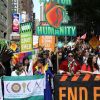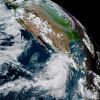-
 +2 +1
+2 +1Market forces are not enough to halt climate change
Investor returns imply that the welfare of future human beings is close to irrelevant
-
 +2 +1
+2 +1Carbon conspiracy: How shadowy think-tanks went to war on net zero
The right wing has ripped up the consensus on the climate crisis. In this documentary short, we examine how radical groups based in and around 55 Tufton Street have fought net zero. Lobbyists and think tanks simulate public support for antidemocratic, anti-scientific measures. Documentary includes interview with Peter Geoghegan, author of Democracy for Sale.
-
 +21 +1
+21 +1Svante Arrhenius, the Man Who Foresaw Climate Change
Svante Arrhenius, awarded with the Nobel prize, discovered at the end of the 19th century that CO2 emissions caused an increase in the planet's temperature.
-
 +25 +1
+25 +1Potty Trained Cows Are No Joke for the Climate
Researchers are teaching cows to pee in designated places where the urine can be collected, sharply reducing methane emissions.
-
 +6 +1
+6 +1Reducing inequality is essential in tackling climate crisis, researchers argue
Promoting climate-friendly behaviours will be more successful in societies where everyone has the capacity: financially, physically, and timewise, to make
-
 +42 +1
+42 +1Saving the African penguin from climate change and overfishing
A hatchery and protected sanctuary in South Africa is boosting penguin numbers.
-
 +16 +1
+16 +1Dalio: It will cost 'between $5 and $10 trillion a year' to limit climate change or pay for the consequences | CNN Politics
Billionaire investor Ray Dalio joins CNN’s Jake Tapper to discuss making clean energy profitable long-term and the likelihood of spending on adaptation rather than mitigation of climate change.
-
 +3 +1
+3 +1AI Says Climate Change Is Going To Kill 500 Million Future Babes: This Is What They Look Like
A recent study estimates there will be 1 billion premature deaths caused by climate change by 2100. That number is pretty shocking, but someone on Reddit opined that no one in the U.S. would care until it started killing white people.
-
 +51 +1
+51 +1Snowfall is changing across the globe, new maps show
Snowfall is declining globally as temperatures rise because of human-caused climate change, a new analysis and maps from a NOAA climate scientist show.
-
 +36 +1
+36 +1Global warming might not happen quite as fast as we thought – here’s why
Plants will absorb more carbon dioxide than predicted, meaning models could be overestimating the speed which the planet will heat up
-
 +41 +1
+41 +1Texas Board of Education urged to reject climate-accurate textbooks
Republican state official pans scientific consensus as a “woke environmental agenda.”
-
 +3 +1
+3 +1Climate-heating gases reach record highs, UN reports
World Meteorological Organization sees ‘no end in sight to the rising trend’, largely driven by fossil fuel burning
-
 +35 +1
+35 +1New study delves into the motivations behind climate action in the United States
A recent study published in PLOS One indicates a rising number of Americans are adopting climate-friendly behaviors, primarily driven by their environmental concerns and sense of responsibility.
-
 +32 +1
+32 +1NYC Marchers to Biden: Stop 'Cowering in a Corner' and Declare Climate Emergency
"It's time for Biden to declare a climate emergency and phase out the fossil fuels killing people and wildlife around the world."
-
 +42 +1
+42 +1'Time to Make Them Pay': Internal Docs Further Expose Exxon Efforts to Spread Climate Lies
"Climate change isn't just a tragedy, it's a crime," said one climate campaigner in response to documents reported by The Wall Street Journal.
-
 +29 +1
+29 +1Disasters are moving to new places faster than we’re keeping up with them
The range of possible disasters is growing for communities across America.
-
 +29 +1
+29 +1Heat Is Not a Metaphor
As the hottest summer on record draws to a close, how do we make sense of the images of a climate in crisis?
-
 +32 +1
+32 +1Exxon Knew about Climate Change Almost 40 Years Ago
A new investigation shows the oil company understood the science before it became a public issue and spent millions to promote misinformation
-
 +30 +1
+30 +1The richest Americans account for 40 percent of U.S. climate emissions
About 15 days of emissions from the richest American was equal to a lifetime of emissions for someone in the poorest 10 percent in America, research found.
-
 +39 +1
+39 +1The Clean Energy Future Is Roiling Both Friends and Foes
Resistance to wind and solar projects from environmentalists is among an array of impediments to widespread conversion to renewables.
Submit a link
Start a discussion




















